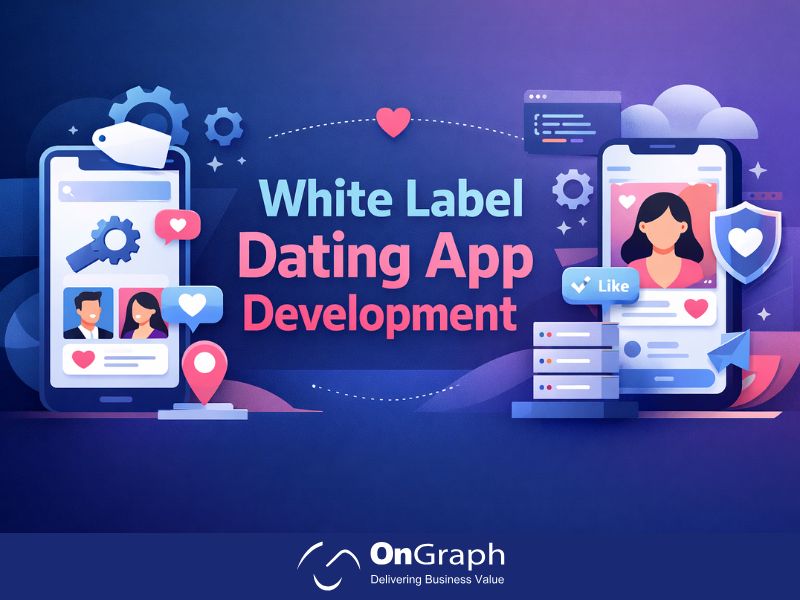Blockchain is no longer limited to powering cryptocurrencies. Today, it plays a central role in transforming how enterprises manage data, operations, and multi-party collaboration. Organizations across industries are adopting blockchain to enhance transparency, strengthen security, streamline processes, and automate workflows. These enterprise blockchain benefits are now driving one of the largest technological shifts in modern business.
For enterprises, blockchain provides a secure, scalable, and permissioned environment where data is tamper-proof and trust is built directly into the system. From supply chains to finance and healthcare, enterprise blockchain use cases show how organizations can reduce operational costs, eliminate inefficiencies, and gain a competitive advantage.
Enterprise blockchain improves security, increases transparency, reduces operational costs, and automates business workflows through smart contracts. It enables tamper-proof data sharing across large ecosystems, making it one of the most impactful technologies for modern enterprises.
In this guide, we explore the top enterprise blockchain benefits, examine real-world use cases, and highlight why this technology is becoming essential for future-ready enterprises.
Top Enterprise Blockchain Benefits You Should Know
Enterprise blockchain benefits go far beyond basic data storage or security. When implemented correctly, blockchain becomes a high-impact transformation tool for large organizations. Below are the major benefits enterprises experience when they adopt blockchain technology.
1. Enhanced Data Integrity
Blockchain stores information in an immutable structure. Every entry is cryptographically secured and cannot be altered without consensus. This improves trust and eliminates data manipulation across departments and partners.
2. Strong Security and Fraud Prevention
Blockchain uses decentralized validation and advanced encryption. This reduces fraud, unauthorized access, and cyberattacks. Enterprises gain a secure data layer for multi-party collaboration.
3. Real-Time Transparency Across Stakeholders
Every authorized participant views the same verified data. This eliminates disputes, increases accountability, and improves decision-making for distributed teams.
4. Reduced Operational Costs
Blockchain removes intermediaries, reduces manual paperwork, and automates approvals. Businesses save millions by optimizing processes and reducing administrative overhead.
5. Automated Workflows with Smart Contracts
Smart contracts automatically enforce business rules. Enterprises use them to automate payments, compliance, settlements, HR processes and supply chain tasks.
6. Faster Audits and Regulatory Compliance
Blockchain’s immutable records simplify audits. Regulators can access verified and timestamped data, enabling easier compliance and reporting.
7. Improved Multi-Party Collaboration
Blockchain is ideal for ecosystems involving suppliers, banks, auditors, partners, distributors, or healthcare providers.
These benefits explain why enterprise blockchain is projected to reach USD 246 billion by 2030 (Statista).
What Is Enterprise Blockchain?
Unlike public blockchains like Bitcoin or Ethereum that anyone can access, enterprise blockchains are permissioned and designed for business environments. They offer scalability, privacy, and control over network access—making them ideal for large-scale operations.
Key benefits of enterprise blockchain:
- Improved data integrity
- Immutable audit trails
- Decentralized data sharing with security
- Reduced operational costs
- Automated workflows via smart contracts
What Are the Key Enterprise Blockchain Benefits?
Here is a quick list of the most important enterprise blockchain benefits:
- Higher security and data protection
- Transparent and traceable operations
- Reduced fraud and human error
- Lower operational and reconciliation costs
- Faster multi-party transactions
- Automated process execution
- Accurate, real-time data sharing
- Easy audit trails and compliance
- Improved trust between organizations
Top 10 Enterprise Blockchain Use Cases
1. Supply Chain Transparency and Tracking
One of the most successful applications of blockchain in business is supply chain management.
Use Case Example: Walmart uses blockchain to track the origin of food products, reducing traceability from 7 days to just 2.2 seconds.
Benefits:
- Real-time tracking of goods
- Authenticity verification
- Reduced fraud and counterfeit risks
2. Cross-Border Payments and Finance
Enterprise blockchain solutions simplify international payments, making them faster, cheaper, and more secure.
Use Case Example: JPMorgan’s JPM Coin and Ripple’s XRP are used to settle cross-border transactions in seconds instead of days.
Benefits:
- Low transaction fees
- Instant settlements
- Minimized banking intermediaries
3. Identity Management and Authentication
Blockchain offers secure, decentralized identity systems, eliminating the need for repeated KYC/AML checks.
Use Case Example: IBM’s Verify Credentials platform allows businesses to validate identities without exposing sensitive data.
Benefits:
- Better data privacy
- Reduced fraud risk
- Portable digital IDs
4. Healthcare Data Sharing and Security
Healthcare organizations are leveraging blockchain to create secure, interoperable systems for patient data management.
Use Case Example: Medicalchain allows patients to share electronic health records with doctors globally while maintaining control.
Benefits:
- Tamper-proof medical records
- Patient consent management
- Enhanced data sharing between hospitals
5. Intellectual Property and Copyright Protection
For content creators, blockchain provides a verifiable system to register ownership and automate royalty payments.
Use Case Example: Sony Music uses blockchain to streamline royalty distribution for artists and producers.
Benefits:
- Automated licensing
- Transparent royalty tracking
- Fraud prevention
6. Voting and Governance
Blockchain can bring transparency and trust to voting systems for governments, companies, and DAOs.
Use Case Example: Estonia has piloted blockchain-based e-voting to ensure tamper-proof election results.
Benefits:
- Immutable vote records
- Remote participation
- Transparent election audits
7. Real Estate and Land Registry
Property transfers and land records can be stored securely on blockchain, cutting out middlemen and reducing fraud.
Use Case Example: The Republic of Georgia uses blockchain for land title registration.
Benefits:
- Faster property transfers
- Reduced legal disputes
- Transparent ownership records
8. Energy and Utilities Management
Blockchain helps track energy production, distribution, and usage, especially in decentralized renewable systems.
Use Case Example: Power Ledger enables peer-to-peer energy trading on blockchain networks.
Benefits:
- Transparent billing
- Smart grid automation
- Renewable energy credits tracking
9. Product Authentication and Anti-Counterfeit
Luxury brands, pharmaceuticals, and food producers use blockchain to prove the authenticity of their products.
Use Case Example: LVMH uses blockchain to track luxury goods and prevent counterfeiting.
Benefits:
- Consumer trust
- Supply chain validation
- Loss prevention
10. Human Resources and Credential Verification
Companies are beginning to use blockchain to validate academic degrees, skills, and employment history.
Use Case Example: Learning Machine (acquired by Hyland) helps universities issue blockchain-secured diplomas.
Benefits:
- Fast background checks
- Secure certifications
- Reliable hiring processes
Also read- 7 Use Cases of Blockchain in the Food Industry in 2025
Why Enterprises Are Rapidly Adopting Blockchain
- Data Transparency: Every stakeholder sees the same version of the truth.
- Security: Cryptographic principles make data tamper-resistant.
- Decentralization: Reduces single points of failure.
- Smart Contracts: Automate tasks and reduce manual errors.
- Cost Efficiency: Cuts out middlemen and optimizes workflows.
Challenges in Enterprise Blockchain Adoption
While adoption is growing, challenges still exist:
- Integration with legacy systems
- Regulatory uncertainty
- High initial setup cost
- Need for ecosystem-wide collaboration
However, with platforms like Hyperledger Fabric, Corda, and Quorum, adoption is becoming more enterprise-friendly.
Also read- Blockchain App Development Cost
Final Thoughts
Enterprise blockchain use cases are expanding rapidly across industries. Whether you’re in supply chain, healthcare, finance, or energy, blockchain offers scalable and secure solutions that can future-proof your business.
By understanding these real-world applications and aligning them with your organizational goals, you can be a frontrunner in the next digital transformation wave.
FAQs
Blockchain enables real-time tracking, verifies product authenticity, and reduces fraud in enterprise supply chains. It creates an immutable audit trail that increases transparency across suppliers, manufacturers, and retailers.
Blockchain reduces transaction times from days to seconds, cuts fees, and eliminates intermediaries. It ensures secure, transparent, and verifiable cross-border payments for enterprises.
Yes, blockchain enhances data security through decentralized storage, encryption, and immutability. It protects sensitive information from tampering or unauthorized access in enterprise systems.
Enterprises use blockchain to create decentralized identity systems, allowing users to manage and share their digital credentials securely without repeated KYC processes.
Top industries include supply chain & logistics, healthcare, finance, real estate, energy, and government. Each uses blockchain for different needs like traceability, data security, and process automation.
Smart contracts are self-executing code on the blockchain. They automate business logic, enforce rules without human intervention, and reduce paperwork and delays in enterprise operations.
Public blockchains are open to everyone, like Bitcoin. Enterprise blockchains are permissioned, giving businesses control over who can access, view, or edit the data, making them more secure and scalable for business needs.
Blockchain creates an immutable record of transactions that can’t be altered. This transparency makes it easier for enterprises to comply with regulations and simplifies auditing processes.
The main challenges include integration with legacy systems, regulatory uncertainty, lack of technical expertise, and initial implementation costs. However, platforms like Hyperledger and Corda are reducing these barriers.
About the Author
Let’s Create Something Great Together!
Latest Blog
















